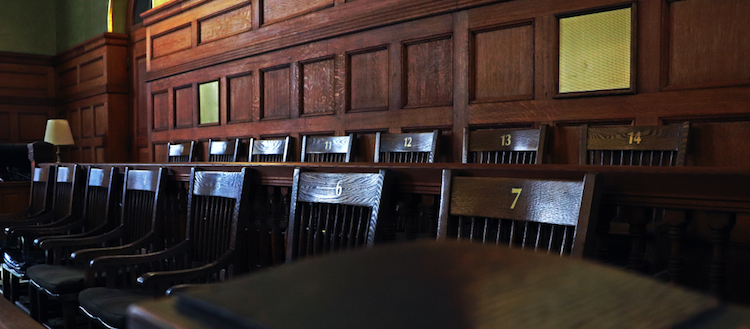ABA brief backs 'individualized content questioning' of possible jurors in high-publicity cases

Image from Shutterstock.
Possible jurors in high-profile cases should be individually questioned to determine what they have read and heard about a case and how it affected their attitudes, the ABA says in an amicus brief filed Monday.
The ABA filed the brief in the pending U.S. Supreme Court case of Boston Marathon bomber Dzhokhar Tsarnaev, according to an ABA press release.
Prosecutors are asking the high court to overturn a ruling by the 1st U.S. Circuit Court of Appeals at Boston that vacated the death penalty for Tsarnaev. The appeals court found that the trial judge did not adequately screen jurors to identify the media coverage that they had seen about the case.
The association’s brief cites the ABA Standards for Criminal Justice, which provide: “If it is likely that any prospective jurors have been exposed to prejudicial publicity, they should be individually questioned to determine what they have read and heard about the case and how any exposure has affected their attitudes toward the trial. Questioning should take place outside the presence of other chosen and prospective jurors and in the presence of counsel. A record of prospective jurors’ examinations should be maintained and any written questionnaires used should be preserved as part of the court record.”
The ABA brief says the association takes no position on whether the federal appeals court decision should be affirmed or reversed, “which may depend on factors beyond the scope of ABA voir dire policies.”
“The ABA instead submits this brief to underscore the importance of content questioning to ensuring a fair trial in high-publicity cases,” the brief says. “In particular, individualized content questioning during voir dire enables judges, as well as prosecutors and defense counsel, to ensure that jurors are, in fact, impartial and have not become biased by pretrial publicity, and in turn to fairly exercise their discretion in deciding whether to strike or challenge jurors. The ABA’s long-considered view is that, in high-publicity cases, there is no adequate substitute for individualized voir dire content questioning.”
It is the responsibility of the judge, rather than the jurors themselves, to determine whether they have an open mind, the brief says. Jurors may say they can be fair and impartial, but the answer may be overly optimistic, the brief says. In addition, jurors may be unaware of or reluctant to admit how much they are affected by pretrial publicity.
“Such specific content questioning is even more important in today’s media environment,” the brief says. “The immense growth in the number and variety of media sources—from cable and satellite television and radio, to internet news and chatrooms, to the rise of social media—has vastly expanded the range and quality of sources through which jurors may hear about a case. Inflammatory or one-sided reports, or even outright disinformation, are significant concerns.”
Weil, Gotshal & Manges filed the brief on a pro bono basis for the ABA.
The case is U.S. v. Tsarnaev.



